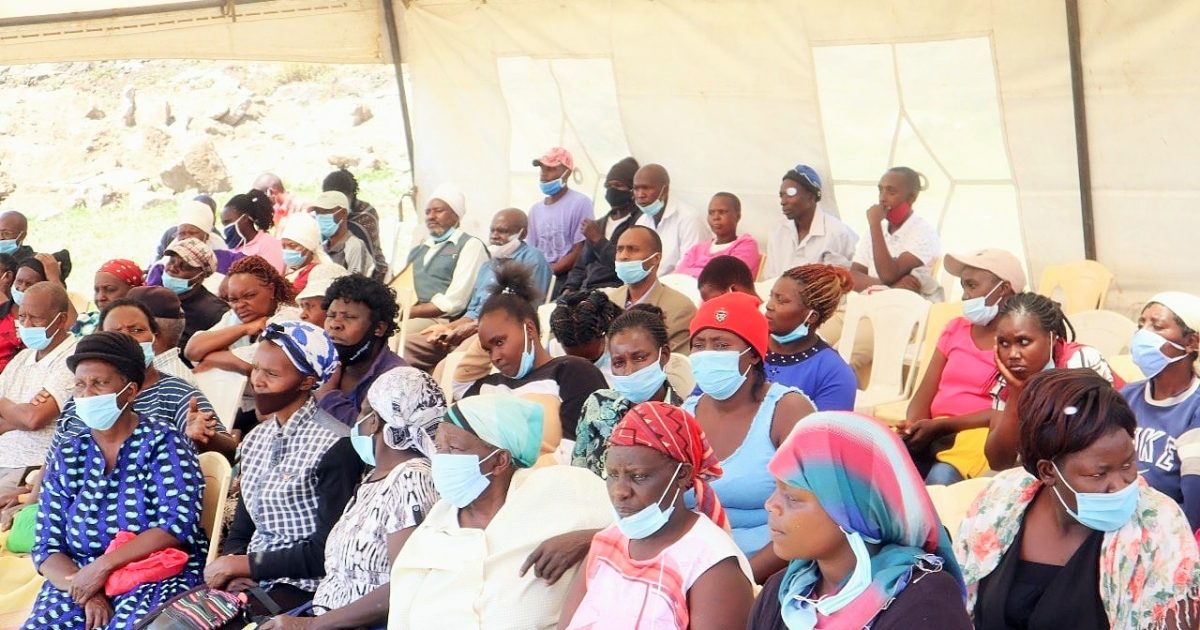The National government will construct a modern Sh47 million market at London trading center, within Nakuru West Sub-County with the aim of boosting horticulture farming in the area.
The market, which is expected to handle at least 60 tonnes of fresh vegetables daily, will complement Nakuru Top and Wakulima markets which are located within the Central Business District.
County Executive Committee Member for Trade Raymond Komen said the proposed market will have sections to cater for textiles, cereals and Jua kali sheds and will serve at least 30,000 residents, 4,500 of them being farmers from surrounding areas.
Mr. Komen said the market which will be the largest in the Sub County will also serve as a wholesale source for bananas, mangoes, avocadoes, potatoes, passion fruits, water melons, sukuma wiki and cabbages which are produced in neighbouring Sub-Counties.
“Officials from the National Government’s State department of Urban Planning have already assessed the proposed site. Tendering for construction will be advertised in a few days. We are grateful to our Governor Lee Kinyanjui who successfully lobbied for the project’s funding from the national government,” stated Komen.
The County Executive noted that London Ward was strategically located near Rongai, Bahati, Njoro, Molo and Subukia Sub-Counties which were major producers of vegetables, fruits, cereals, poultry products, meat and milk. “We are also glad that once operational, it will ease congestion of the markets at the town centre as well as contributing to the development of Nakuru West as the county gears to attain City status,” Komen added.
He said the devolved unit was constructing similar markets in other Sub-Counties to boost earnings of respective rural populations by minimizing exploitation by brokers adding the new Sh10 million market at

Subukia trading center was already operational. The market which handles on average 40 tonnes of fresh vegetables, will complement the Kabazi Market, 8 kilometers away.
The market is about 22 from Nyahururu Town in Laikipia County which is a major source of farm produce that is consumed in Subukia Sub-County. Subukia market started operation after more than a decade of wrangles, which had stalled it. The construction of the project, which was commissioned 12 years ago, had been affected by politics and constant change of contractors.
In 2008, the then coalition government under the Economic Stimulus Programme (ESP) mooted the idea to upgrade the market, a key economic lifeline of Subukia town and its environs.
But since it’s commissioning, the multi-million rehabilitation project has been dogged by endless controversies that led to its stalling. Its rehabilitation was meant to be a key achievement of former President Mwai Kibaki under the ESP. The idea was to boost economic growth and lift the economy out of a serious recession that hit the country after the 2007/2008 post-election violence.
However, the project has taken almost a decade to be completed, longer than the multi-billion standard gauge railways from Mombasa to Nairobi which took only three years.
Mr. Komen revealed that Nakuru County will spend a further Sh600 million to build a new market at an old fire station in Bondeni Estate, in phase one of decongestion of the Central Business District. The CEC said phase two of the project will involve putting up a Shs 100 million modern bus terminus and parking lot for private vehicles at the site. “We will be decommissioning the Old Fire Station and its adjoining County slaughter house to create space for these public amenities. The relocation of these social amenities will decongest the CBD and lead to orderly development and expansion of the town. The project will be implemented within two years,” said Komen.
He stated that construction of the market is set to provide a favorable environment and alleviate the problem of lack of enough selling space for over 2,000 traders. Once complete Mr Komen affirmed that a joint committee will be set up to come up with a list of traders who will be allocated spaces as well as establish the mechanism by which traders will be selected and how the market will be operated.
By Jane Ngugi





